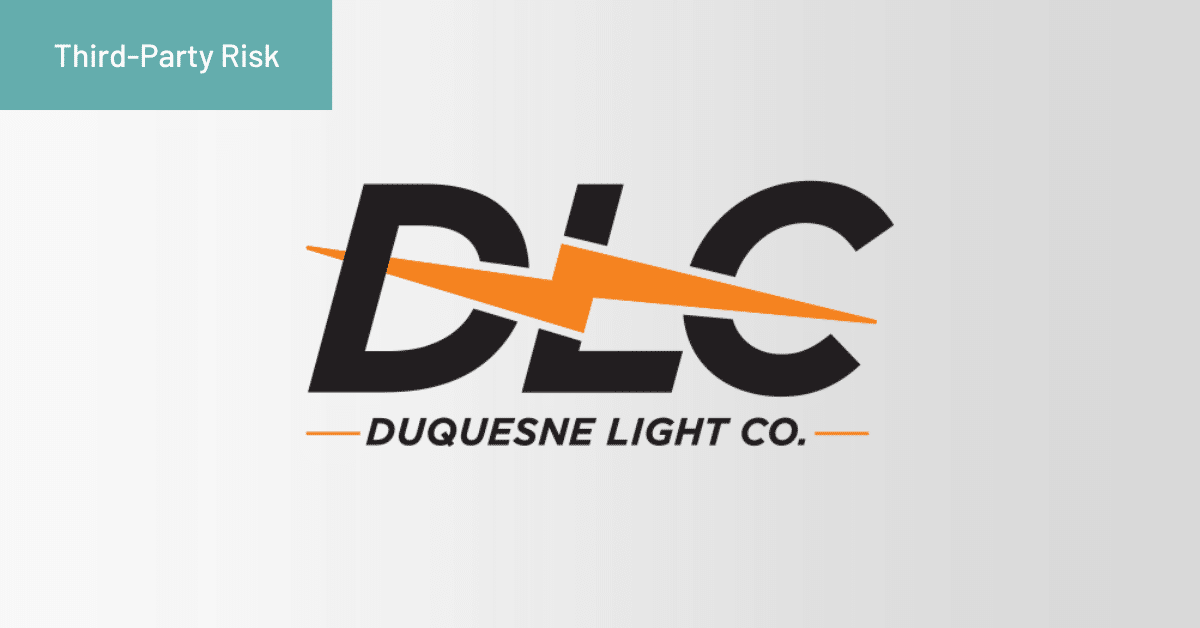In businesses across all industries, off-site forces govern how companies function. To keep operating—and to maintain a positive reputation—an organization must comply with the rules and regulations of its industry. As a compliance or IT professional, understanding what regulatory compliance is will ensure your company adheres to legal and ethical standards.
What Is Regulatory Compliance?
Regulatory compliance is how companies abide by all applicable laws and rules. Government entities and industry organizations establish these standards to safeguard consumers, employees, stakeholders and the environment. Different sectors have their own guidelines, but the overarching goal is always the same: maintain integrity, trust and safety.
It’s the role of compliance managers to help their companies stick to these rules without fail. However, staying compliant involves more than reading a rulebook and ticking boxes. It’s about creating a workplace culture where everyone understands the importance of following the rules. Such a culture helps businesses avoid legal troubles and fosters trust among clients and partners.

Types of Regulatory Compliance
There are several types of regulatory compliance, each targeting specific industries and needs. By understanding the different kinds, you can better manage overall compliance within your organization.
- Environmental: This focuses on adhering to environmental laws and regulations. Companies must use sustainable practices so their operations do not hurt the ecosystem.
- Financial: Financial institutions must work to deter fraud and shield client intel. The Securities and Exchange Commission (SEC) and Financial Industry Regulatory Authority (FINRA) develop these frameworks.
- Healthcare: Healthcare providers need to conform to rules that keep sensitive patient information confidential.
- Data Privacy: Companies must follow several protocols to defend their clients’ virtual info. Given the vast amount of cyber data streaming online, these regulations are growing more stringent.
What Are Examples of Compliance Regulations?
Depending on your company and industry, you must consider many different compliance regulations. Here are a few key examples that may shape your organization:
1. The Sarbanes-Oxley Act (SOX)
This act stresses fiscal clarity and accountability. It requires companies to maintain accurate financial records. To comply, firms must practice internal controls for financial reporting.
2. The Occupational Safety and Health Administration (OSHA)
OSHA safeguards employee welfare in multiple industries by setting national regulatory standards for safe working conditions.
3. The Health Insurance Portability and Accountability Act (HIPAA)
This groundbreaking act champions patient confidentiality. It is a national law with guidelines that secure private medical information. The law applies to all organizations that house protected health information.
4. The California Consumer Privacy Act (CCPA)
This regulation grants California residents rights over their personal info. It requires businesses to follow rigid data protection rules.
5. Payment Card Industry Data Security Standard (PCI DSS)
This standard is for businesses working with credit card information. It mandates a secure environment to shield cardholder data from fraud and theft. Compliance requires regular network monitoring and vulnerability management.

Why Is Regulatory Compliance Important?
Your organization needs regulatory compliance for several reasons. First, it helps your company avoid legal hurdles and penalties. Organizations that fail to obey the rules can face drastic fines, fees, litigation and reputational harm. The fines can easily reach millions of dollars, and even a first-time offense can hurt future prospects for your company. You need to keep up to date with the latest regulation changes to prevent these consequences.
Second, compliance builds trust with clients and other stakeholders. When your organization follows the rules, it demonstrates integrity and reliability. This fosters strong relationships and builds your brand’s credibility.
Last, regulatory compliance contributes to a fair and ethical corporate environment. When everyone adheres to the guidelines, it levels the playing field. The result is a sector that promotes honest practices and consumer protection, contributing to a healthier economy with stronger companies.
Benefits of Regulatory Compliance
Abiding by regulations offers a range of benefits that can uplift your organization:
- Risk Mitigation: Compliance processes identify potential risks and install tactics to reduce them. These measures protect your company from legal and financial troubles.
- Improved Efficiency: You can streamline your operations with clear processes and guidelines.
- Competitive Advantage: When your company focuses on compliance, it can gain a leg up over those that don’t.
- Cost Savings: Adhering to regulations can save your organization money by evading costly penalties.
- Increased Customer Trust: Compliance builds trust with customers. It shows them your organization prioritizes ethical practices and protects their best interests.
- Higher Employee Morale: Following regulations creates favorable working conditions and raises employee morale. Your staff will feel proud to work for a company with an integrity-based culture. It could also attract higher-quality candidates and reduce turnover rates.

Consequences of Non-Compliance
When your organization does not stick to protocols, it can suffer heavy fallout. Neglecting compliance can trigger a cascading effect that drains resources and undermines your business’s stability and growth potential. Make compliance a top concern to avoid these detrimental consequences.
Financial Repercussions
Regulatory bodies can charge massive fines if you do not meet compliance requirements. These repercussions are not mere inconveniences. They can lead to a substantial amount of money down the drain.
Legal Backlash
Non-compliance can lead to lawsuits and costly legal battles. These disputes can disrupt operations and divert valuable resources from core business activities. Not to mention, judgments against your company can be financially devastating, impacting immediate finances and also long-term business viability.
Credibility Loss
News of non-compliance can spread at a rapid pace. Social media and other online platforms make such information travel even quicker.
The backlash could sabotage your brand’s image and erode stakeholders’ trust. They may instead turn to your competitors. You could lose meaningful business opportunities and future partnerships.
Operational Disruptions
Non-compliance can cause operational halts or closures mandated by regulatory authorities. Both your productivity and revenue could take a big hit. It can lead to significant delays in workflows and project timelines.
Increased Scrutiny
Once regulators find a company to be non-compliant, they may be more critical. They could demand more frequent and thorough audits.
This ongoing monitoring can pressure a company to rectify any issues, creating a stressful working environment. It could even initiate a trickle-down effect, where managers and employees take shortcuts due to taxing deadlines. The consequence could be further non-compliance, repeating the cycle.
Loss of Licenses or Permits
In severe cases, non-compliance can result in the revocation of essential licenses or permits. These permits could be necessary to operate, so losing them would cripple the business.
How To Implement a Compliance Plan
Make a solid compliance plan to prevent negative consequences. These are the basic steps for implementation:
- Identify applicable regulations: Study all the regulations that apply to your business, including industry-specific rules such as environmental regulations or data privacy laws. Hire a third-party auditor to give you an impartial review and suggestions.
- Conduct a risk assessment: Perform a comprehensive risk assessment to uncover non-compliance potential within your organization. Be proactive and address these concerns before they become critical issues.
- Develop policies and procedures: Create strategies that align with the applicable regulations. Integrate them throughout your organization. These should be accessible to all employees and undergo regular reviews and updates as needed.
- Train staff: Employees play a crucial role in maintaining organizational compliance. It is your responsibility to educate them and provide training. They need to understand the relevant regulations and strategies to fulfill their roles in the process.
Best Practices for Maintaining Compliance

Staying compliant requires ongoing vigilance. These best practices help you stay on track.
Perform regular audits to identify potential compliance gaps and address them immediately. To foster a culture of compliance, encourage open communication and collaboration among employees. This approach will showcase how your organization values compliance.
Stay updated on regulatory changes that may impact your business so you can adapt your compliance program to meet any new requirements. When you notice non-compliance, take swift action to address and prevent it from repeating. Periodically review and update your policies so they stay current with regulatory standards. By monitoring and fine-tuning your compliance program, you can protect your company from risk.
Also, reach out to experts in the field of compliance. They can offer an objective perspective on your program’s effectiveness and identify areas you can improve. Gather what you’ve learned and conduct employee training sessions on compliance strategies. Reinforce the importance of sticking to these guidelines. Commit to educating your workforce so they can embrace their role in the process.
Commit to Success and Ethical Operations
The regulatory compliance process can be challenging. It’s not a one-time task or something to brush aside when things get busy. It is non-negotiable for your operations to be both successful and ethical. To prevent costly ramifications and protect your organization’s reputation, follow best practices and foster a culture of compliance. Stay informed, be vigilant, remain consistent, and prioritize compliance.
Take your compliance efforts to the next level with Onspring. Schedule a demo to explore how our solutions can strengthen your compliance efforts.



